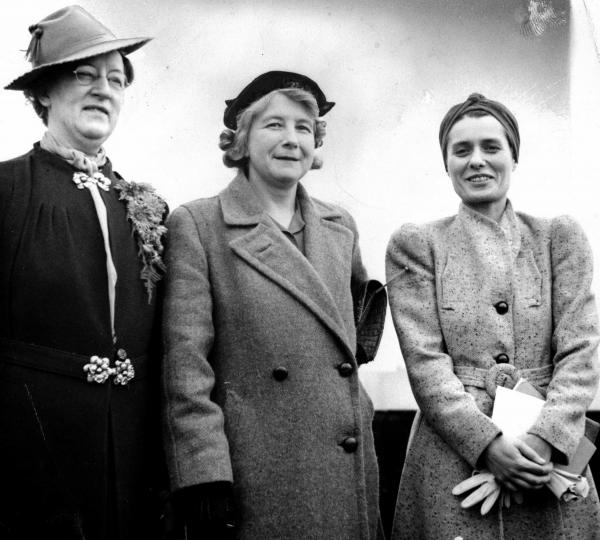
Sainted founders, sacred relics and heroic fables are the necessary ingredients of party-building for any serious political movement. They bind activists to the cause in dark times and are the stuff of celebratory toasts on nights of triumph. Sadly, our political parties — like Canadians generally — slight their own histories, ignoring their power to recruit and renew.
The gap is not perhaps surprising when our founding father, and the architect of one of Canada’s great political parties, had not been the subject of a single popular biography until Richard Gwynn’s magisterial two-volume life of Sir John A. Macdonald emerged this decade (with apologies to fans of Donald Creighton’s turgid effort from the 1950s). By contrast, more than a dozen new texts on the life of Lincoln have been published in the last ten years.
Now, Lynn Gidluck has done great service to Canadians interested in the origins and growth of social democracy with this little gem of a popular history. Her finely detailed work reflects her training as a researcher, and her breezy style makes this a far more accessible history than most. Gidluck mixes spare narrative with delightful anecdotes, offering a new dimension to personalities usually portrayed with more austerity. Who knew Grace McInnis had a lifelong unrequited love?
In this tightly edited 208-page text, Gidluck wisely devotes 150 pages to the years before the NDP founding convention. As in all political histories, the closer one comes to the present, where the players are still alive and disputatious, the more the analysis becomes vulnerable to the settling of scores and buffing the record. Her characterization of the impact of the constitutional wars on the NDP, as well as her recounting who was on which side and why in the difficult leadership conventions of the 1990s, will cause some of those veterans to mutter “Wrong!” They will protest the efforts of old enemies to push her to false conclusions.
But Gidluck’s work is especially valuable on the early stirrings of populist and labour activism in the 19th and early 20th centuries. Most histories of the CCF/NDP begin in Calgary in 1932, but as Gidluck records, there were elected socialists in various Canadian communities as early as the 1890s. She weaves the serendipitous development of these small fragile organizations through delicious sidebar tales. Again, who knew that the CCF might have been the Socialist Party of Canada if not for a car accident waylaying some key delegates on their way to Calgary?
Like many Prairie populist historians, Gidluck sees the history of progressive Canadian activism as running from the BC coast to Winnipeg — extending perhaps for a brief period as far as the YMCA camp on the Lake of the Woods. In bemoaning the absence of delegates from Ontario, Quebec and the Maritimes at the CCF founding conventions, she is oblivious to the reality that trips of more than 2,000 miles by gravel road to Regina or Calgary were not for the faint-hearted, and possible only if you had a car or enough money for a four-day train ride. CCF pioneers in Ontario and Nova Scotia and other points east were not usually so blessed.

It is strange how historians of this era and these social movements continually slight the impact of, for example, the co-op and credit union movement in Nova Scotia and Cape Breton, and the role of Father Moses Coady in building that independent social movement in the 1920s. Or how they ignore the role progressive Catholic activists in Quebec played in mobilizing the labour movement, the rebirth of a progressive Liberal Party and then the Parti Québécois. Ontario’s progressive pioneers also get short shrift and British Columbians — mirroring today’s stereotypes — are usually conveyed as undisciplined eccentric wild-eyed radicals.
Straitlaced Prairie Methodists were a powerful centre of the Canadian left from its earliest days, but there were a few Canadians from elsewhere who played important if less well-known roles.
Despite her regional parochialism, Gidluck’s book is a fine popular introduction that fills a big gap in Canadian political history. Biographies of party leaders, by themselves, don’t reveal the rich life of a political party as an institution, and the stories of the hundreds of men and women central to its essential history and fables. Gidluck has corrected that oversight with her fine account of the activists from the early days of the Canadian left. Now it’s time for a historian to unearth and tell the tales of the pioneer activists who built Canadian liberalism and conservatism.
Photo: Shutterstock by Billion Photos






